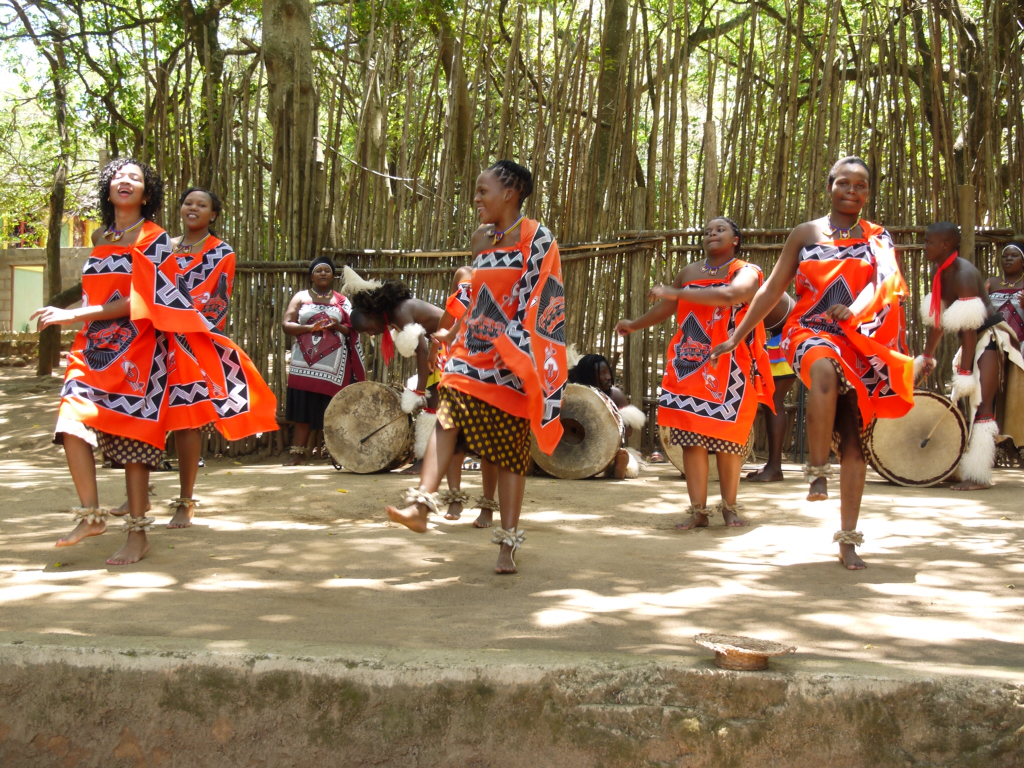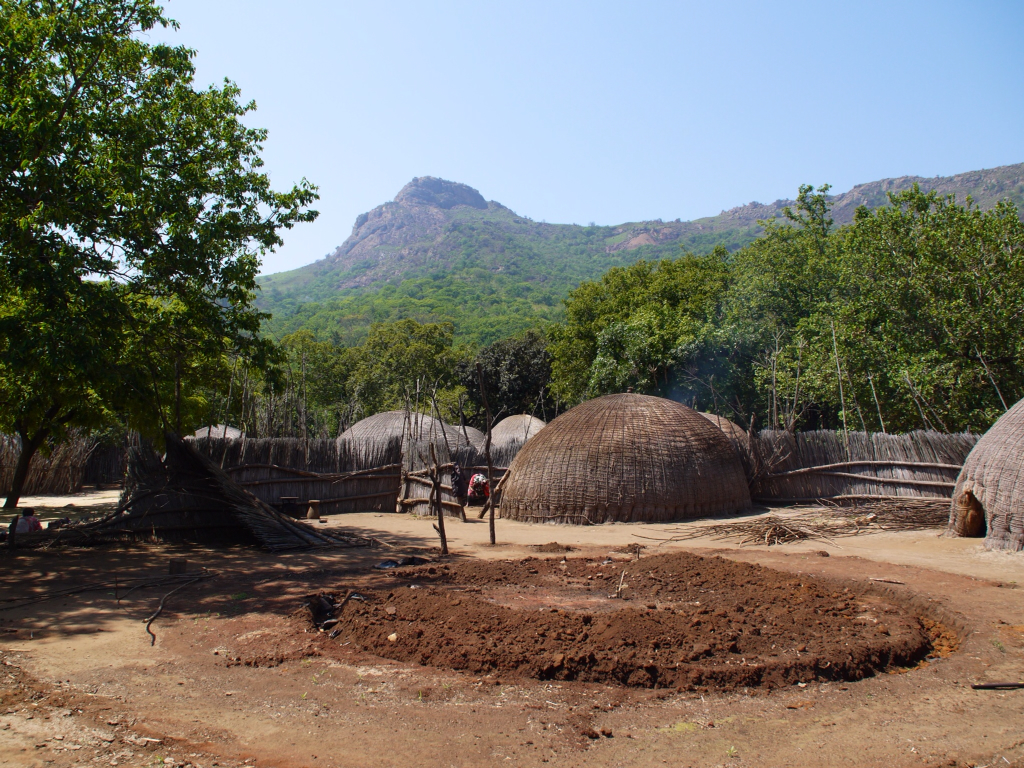Eswatini, formerly known as Swaziland, boasts a rich and vibrant history that dates back centuries. The kingdom traces its roots to the early Nguni people who migrated to the region in the 15th century. Over the years, Eswatini evolved into a monarchy under the rule of the Swazi royal family, with a distinct cultural identity characterized by traditional ceremonies, music, and dance. Despite facing colonization by European powers in the 19th century, Eswatini managed to maintain its independence and sovereignty, eventually gaining full independence from British rule in 1968. Today, the kingdom continues to celebrate its heritage and traditions while embracing modern developments and progress.
Exploring the Geography of Eswatini (formerly Swaziland):
Nestled in the heart of southern Africa, Eswatini is a landlocked kingdom bordered by South Africa to the west and Mozambique to the east. Despite its small size, Eswatini boasts diverse landscapes, including lush valleys, rolling hills, and majestic mountains. The country's geography is shaped by the Great Escarpment, which divides the highveld in the west from the lowveld in the east. Eswatini's natural beauty is further enhanced by its rich biodiversity, with numerous protected areas and wildlife reserves that offer sanctuary to a wide array of flora and fauna.
Tourist Destinations/Attractions of Eswatini (formerly Swaziland):
- Mlilwane Wildlife Sanctuary: As Eswatini's oldest protected area, Mlilwane Wildlife Sanctuary is a haven for nature lovers and outdoor enthusiasts. Visitors can embark on guided game drives, walking safaris, and horseback riding excursions to observe indigenous wildlife such as zebras, wildebeests, and antelopes in their natural habitat.
- Hlane Royal National Park: Home to the largest herds of game in Eswatini, Hlane Royal National Park offers unparalleled opportunities for wildlife viewing and birdwatching. Travelers can explore the park's vast savannahs, dense woodlands, and ancient watering holes while spotting iconic African species such as lions, elephants, and rhinoceroses.
- Ezulwini Valley: Known as the "Valley of Heaven," Ezulwini Valley is a picturesque region dotted with cultural attractions, craft markets, and traditional homesteads. Visitors can immerse themselves in Swazi culture by attending cultural performances, visiting craft markets, and sampling local cuisine at roadside eateries and traditional restaurants.
- Mantenga Nature Reserve: Nestled in the heart of Ezulwini Valley, Mantenga Nature Reserve is renowned for its scenic beauty and cultural significance. Highlights of the reserve include Mantenga Falls, a majestic waterfall cascading into a natural rock pool, and Mantenga Cultural Village, where visitors can learn about Swazi traditions, customs, and folklore.
- Lobamba: As the traditional and legislative capital of Eswatini, Lobamba is a historic town brimming with cultural landmarks and royal residences. Travelers can visit the Royal Kraal, the residence of the Queen Mother, and the Parliament House, where the King of Eswatini presides over the nation's affairs. Additionally, Lobamba hosts the annual Umhlanga Reed Dance, a colorful cultural festival celebrating Swazi heritage and womanhood.
Travel Plan for Eswatini (formerly Swaziland) Tourists Bifurcated in Days:
Day 1: Arrival in Ezulwini Valley
- Arrive in Eswatini and check into accommodations in Ezulwini Valley.
- Explore cultural attractions such as Mantenga Cultural Village and craft markets.
- Enjoy dinner at a traditional Swazi restaurant.
Day 2: Mlilwane Wildlife Sanctuary
- Embark on a morning game drive or walking safari in Mlilwane Wildlife Sanctuary.
- Have lunch at the reserve's picnic area.
- Participate in optional activities such as horseback riding or mountain biking.
- Return to Ezulwini Valley for dinner and relaxation.
Day 3: Hlane Royal National Park
- Depart for Hlane Royal National Park and check into accommodations.
- Enjoy a guided game drive or self-drive safari in search of wildlife.
- Have lunch at the park's restaurant overlooking a watering hole.
- Participate in a sunset game drive or birdwatching excursion.
- Return to the lodge for dinner and overnight stay.
Day 4: Mantenga Nature Reserve
- Visit Mantenga Nature Reserve and hike to Mantenga Falls.
- Explore the cultural village and learn about Swazi traditions and customs.
- Have lunch at a nearby restaurant.
- Optional activities include birdwatching and nature walks.
- Return to Ezulwini Valley for dinner and evening entertainment.
Day 5: Lobamba and Departure
- Visit Lobamba and explore cultural landmarks such as the Royal Kraal and Parliament House.
- Have lunch at a local restaurant.
- Depart for the airport for your onward journey or continue your exploration of Eswatini.
Best Activities to Do in Eswatini (formerly Swaziland) with Description:
- Wildlife Safaris: Experience the thrill of spotting Africa's iconic wildlife species in their natural habitat on guided game drives or walking safaris in Eswatini's national parks and reserves.
- Cultural Experiences: Immerse yourself in Swazi culture and traditions by visiting cultural villages, attending cultural performances, and sampling traditional cuisine at local eateries.
- Nature Exploration: Explore Eswatini's diverse landscapes and ecosystems through activities such as hiking, birdwatching, and nature walks in its national parks, reserves, and nature reserves.
- Adventure Sports: Get your adrenaline pumping with a range of adventure sports and outdoor activities, including mountain biking, horseback riding, and zip-lining amidst Eswatini's scenic beauty.
- Craft Markets and Shopping: Discover unique handicrafts, artwork, and souvenirs at local craft markets and shops, where you can purchase handmade items and support local artisans and craftsmen.
Eswatini (formerly Swaziland) Travel Package Costing with Bifurcation:
The cost of a travel package to Eswatini can vary depending on factors such as accommodation, transportation, activities, and duration of the trip. Here's a rough estimate to help you plan your budget:
- Flights: Round-trip flights to Eswatini from major international airports can range from $800 to $1500 or more, depending on the airline, time of booking, and departure location.
- Accommodation: Accommodation options in Eswatini range from budget guesthouses and hostels to mid-range hotels and luxury lodges. Budget accommodations typically cost between $30 to $100 per night, while mid-range hotels may range from $100 to $200 per night. Luxury resorts and lodges can range from $200 to $500 or more per night, depending on the location and amenities offered.
- Activities: Entrance fees to tourist attractions, guided tours, and activities in Eswatini vary depending on the activity and location. Prices range from $10 to $50 or more per person for guided tours, museum visits, and cultural experiences.
- Transportation: Transportation within Eswatini is typically done by car, either through rental services or private hire. Car rental prices can range from $50 to $100 or more per day, depending on the vehicle type and rental duration. Alternatively, travelers can also use taxis or public transportation for shorter distances.
Top 5 Hotels & Resorts to Stay in Eswatini (formerly Swaziland):
- Royal Swazi Spa (Ezulwini Valley): Nestled in the heart of the Ezulwini Valley, the Royal Swazi Spa offers luxurious accommodations and world-class amenities. Guests can enjoy spacious rooms, gourmet dining options, and a wide range of wellness treatments at the hotel's renowned spa and wellness center.
- Mountain Inn (Mbabane): Situated in the capital city of Mbabane, Mountain Inn is a cozy retreat offering panoramic views of the surrounding mountains. The hotel features comfortable rooms, a restaurant serving international cuisine, and a swimming pool surrounded by lush gardens.
- Mlilwane Wildlife Sanctuary Rest Camp: For a unique safari experience, stay at the Mlilwane Wildlife Sanctuary Rest Camp, where guests can sleep in traditional beehive huts or camp under the stars. The camp offers basic amenities and proximity to the sanctuary's wildlife and nature trails.
- Hlane Royal National Park Accommodations: Visitors to Hlane Royal National Park can choose from a variety of accommodations, including self-catering cottages, safari tents, and traditional rondavels. Staying within the park allows guests to immerse themselves in the wilderness and experience the sights and sounds of the African bush.
- Ezulwini Sun (Ezulwini Valley): Set amidst landscaped gardens and rolling hills, Ezulwini Sun offers a tranquil escape in the heart of the Ezulwini Valley. The hotel features spacious rooms, a swimming pool, and recreational facilities such as tennis courts and a casino, ensuring a comfortable and enjoyable stay for guests.
Customer FAQs related to Eswatini (formerly Swaziland):
Is Eswatini safe for tourists?
Eswatini is generally considered safe for tourists, with low crime rates and a welcoming atmosphere. However, travelers should exercise caution and be vigilant, especially in urban areas and crowded tourist areas. It's advisable to take common-sense precautions such as avoiding walking alone at night and keeping valuables secure.
What is the best time to visit Eswatini?
The best time to visit Eswatini is during the dry season, which runs from May to September. During this time, the weather is pleasant, with sunny days and cooler temperatures, making it ideal for outdoor activities and wildlife viewing. The wet season, from October to April, brings heavy rainfall and higher humidity, although it can still be a rewarding time to visit for those interested in birdwatching and lush landscapes.
Do I need a visa to visit Eswatini?
Most visitors to Eswatini do not require a visa for stays of up to 30 days. However, it's essential to check the visa requirements for your nationality before traveling and ensure that your passport is valid for at least six months beyond your planned departure date.
What languages are spoken in Eswatini?
The official languages of Eswatini are SiSwati and English. SiSwati is the dominant language spoken by the majority of the population, while English is widely understood and used for official purposes, business, and education.
What currency is used in Eswatini?
The official currency of Eswatini is the Swazi Lilangeni (SZL), which is pegged to the South African Rand (ZAR) at a 1:1 exchange rate. Both currencies are widely accepted throughout the kingdom, and travelers can use South African Rand for most transactions. It's advisable to carry cash for smaller purchases, as credit cards may not be accepted in rural areas and smaller establishments.
Exploring the Kingdom of Eswatini promises a unique blend of cultural experiences, breathtaking landscapes, and unforgettable adventures. Whether you're exploring its wildlife sanctuaries, immersing yourself in Swazi culture, or simply relaxing amidst its natural beauty, Eswatini offers a truly authentic African experience that will leave a lasting impression on every traveler.










No comments:
Post a Comment